Iran Claims It Foiled Cyberattack On Central Bank
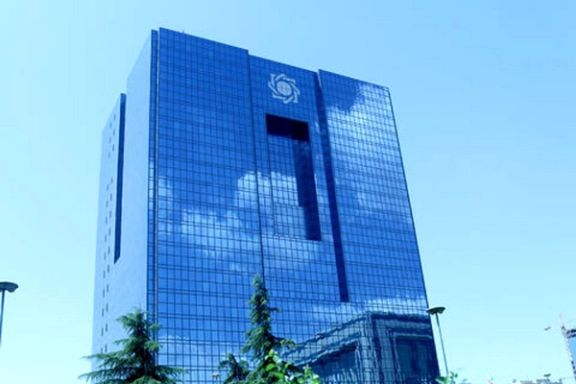
Iran has foiled a cyberattack on its central bank, and government -controlled apps, the country's telecommunications infrastructure company said on Friday.

Iran has foiled a cyberattack on its central bank, and government -controlled apps, the country's telecommunications infrastructure company said on Friday.
Anonymous and other global hacking groups threatened in October to launch cyberattacks on Iranian institutions and officials in support of anti-government protests and to bypass internet censorship there.
Several hackings did take place and a throve of government secrets have been put online by hactivist groups since October. The most notable were secret briefing files stolen from Fars news agency that reveled texts of secret briefings for senior officials.
Amir Mohammadzadeh Lajevardi, head of the Infrastructure Communications Company, said the central bank was targeted by a distributed denial-of-service (DDoS) attack on Thursday night, the official IRNA news agency quoted him as saying.
DDoS attacks attempt to cripple servers by overwhelming them with internet traffic.
"These days, the largest volume of foreign attacks is against banks and financial institutions, internet providers and communications infrastructures, which have been repelled," Lajevardi said. IRNA gave no further details.
The central bank said in September that a cyberattack briefly took its website offline.
Internet access has been severely limited in Iran since widespread protests erupted over the death in mid-September of a young Kurdish woman, Mahsa Amini, while in the custody of the morality police over enforcement of mandatory dress code laws.
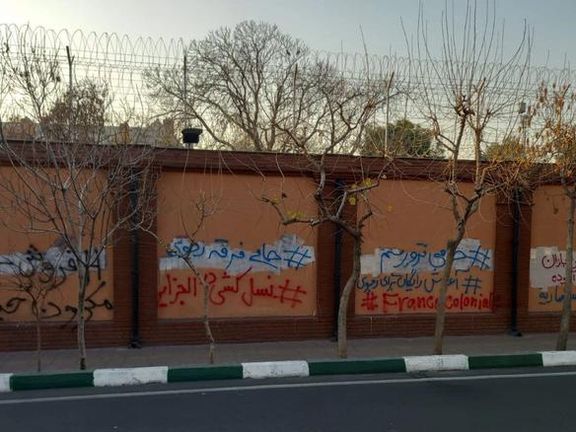
An Iranian lawmaker and IRGC officer in December called for the “serious implementation” of a 2011 law to reduce diplomatic relations with the United Kingdom.
At the time the outer walls of the UK embassy in Tehran were defaced by anti-British slogans. This week, hardliner elements did the same to the French embassy after the satirical Paris magazine Charlie Hebdo published a special issue with caricatures of Supreme Leader Ali Khamenei.
The issue of downgrading Tehran's ties with London had also been discussed at the Iranian parliament in 2009 and 2010. In 2010 ultraconservative lawmakers demanded severing ties with London altogether. The motion was sent to the Foreign Relations and National Security Committee of the Majles, but did not go any further.
Esmail Kowsari, an IRGC general who is a member of the parliament (Majles), demanded the implementation of the law against the UK and also called on the government to reconsider its ties with Germany and France.
In 2011, the move was motivated by a set of UK sanctions against Iran and in late 2022 Iranian hardliners began a series of acts of vandalism against the British embassy in Tehran as the United Kingdom, Germany and France took the lead in escalating international actions against Iran's human rights violation and drone deliveries to Russia, as well as passing a resolution at the United Nations to set up a fact-finding committee about Tehran's violations of human rights.
Kowsari told Etemad Online in December that the three European states have sinister ideas about the Iranian nation and their anti-Iranian moves have proven this. Kowsari also said in an interview with the IRGC-linked Fars News Agency: "We wish to expand our diplomatic relations, but we do not want this relation at any price."
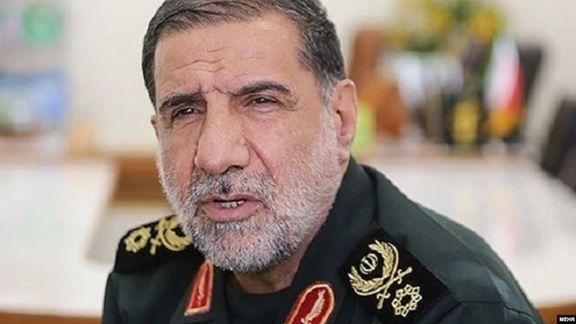
Thursday morning in Tehran, vigilante groups vandalized parts of the French embassy in Tehran in revenge for French satirical publication Charlie Hebdo publishing a special issue on Wednesday with cartoons about Khamenei under the title: "Let's take back the mullahs to where they come from."
The Iranian foreign minister called the cartoons "rude and unethical" and summoned the French ambassador to the Foreign Ministry to hand him a note of protest mindless of the fact that unlike the Islamic Republic, the French government does not intervene in the affairs of independent press. Foreign Minister Hossein Amir-Abdollahian threatened to give a firm and effective response to the satirical weekly. Meanwhile, Iran shut down the French "Iranian Studies Center" in Tehran, a prestigious research center whose works are respected by Iranian and French scholars.
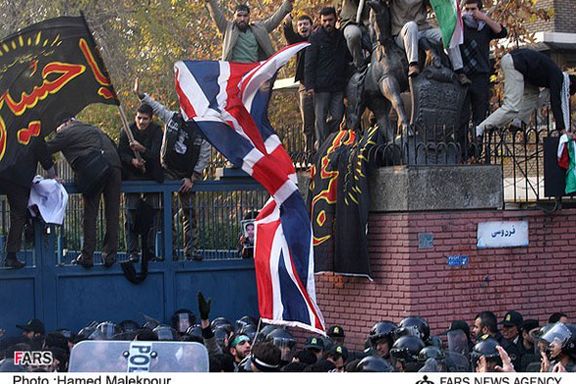
The 2011 legislation was followed by an arson attack on the British embassy in Tehran by vigilante groups who were characterized by the government-owned press as "students," but independent sources questioned the characterization. Iran's -then- deputy foreign ministers Hassan Ghashghavi and Ali Ahani went to the Majles to convince the lawmakers that cutting ties with London was not in the country's interest. The Majles subsequently added a clause to the legislation which said that ties with the UK could be normalized if the UK changed its policies toward Iran.
In 2017 Ahmadinejad called the legislation and the attack on the British embassy a move that provided pretexts to the United Kingdom to take action against Iran. He also accused the Iranian state television of broadcasting live the attack on the British embassy.
Hardliner members of the parliament prevented -then- UK Foreign Secretary Jack Straw from taking part in Hassan Rouhani's inauguration ceremony in 2013. But eventually, three years later the two countries’ embassies were reopened after a relatively long closure.

Iran’s Revolutionary Guard (IRGC) says that retaliatory military attacks against US targets for the killing of Qassem Soleimani in 2020 are still viable options.
IRGC spokesman Ramazan Sharif was quoted by Iranian media as saying that “moves such as [the attack on] Ain al-Assad base [in Iraq] are still being considered and “will become operational in due time.”
Five days after Soleimani was killed by a US air strike on January 3, 2020, Iran fired ballistic missiles at the Iraqi base hosting US troops. No Americans were killed but reports at the time spoke of dozens of servicemen receiving concussion because of the strong explosions.
At the time, President Donald trump who ordered the killing said that Soleimani presented an imminent danger to US personnel and interests in the region. He was the commander of Quds Force and Iran's top military and intelligence operative in the Middle East.
Since then, the Islamic Republic has continued threatening revenge for Soleimani, and these threats were repeated during the third anniversary of his killing this week.
Plots were discovered in the United States aimed at assassinating former US National Security Advisor John Bolton and former Secretary of State Mike Pompeo.
Iran International reported in December that based on documents a hactivist group provided, an IRGC envoy went to Washington January 16, 2022, to carry out the plan, but the IRGC was unaware that an individual hired to kill Bolton in exchange for $300,000 was actually an FBI informant.
In August 2022, the US Justice Department charged a member of the IRGC in absentia with planning to assassinate Bolton.
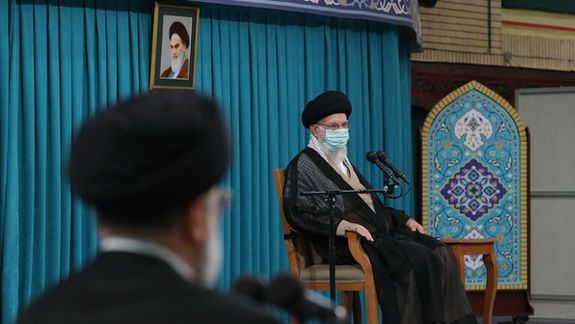
Mohsen Hashemi, son of ex-Iranian president Akbar Hashemi Rafsanjani has said that top clerics lack influence in society which is tangled in a political crisis.
A senior ayatollah separately agreed with Hashemi that clerics have lost influence and the government has been doing a lousy job both in foreign policy and in domestic affairs.
Hashemi expressed regret in an interview with Jomhuouri Eslami newspaper, which was also carried by many other Iranian news outlets, that one of the country's current problems is that there are no charismatic leaders.
Hashemi, a former chairman of the Tehran City Council, said in the interview that people’s financial situation is "more than critical" as inflation and unemployment have reached an explosive level. He added that in such a situation tackling economic problems should have been the government's first priority.
Hashemi reminded that his father's "reconstruction government" (1989-1997) recognized poverty as Iran's biggest enemy and prioritized economic progress over the ideological campaigns against the United States and Israel and attached high significance to people's food, housing, health and education.
He further pointed out that with the concentration of power in the hands of Iran’s conservatives and the elimination of ‘moderates’ and ‘reformists’ from the political scene in the 2020 parliamentary election and 2021 presidential election, Iran is entangled in political deadlock. Conservatives control not only the parliament and the cabinet, but also the state media, the armed forces, the Guardian Council, and all other political institutions.
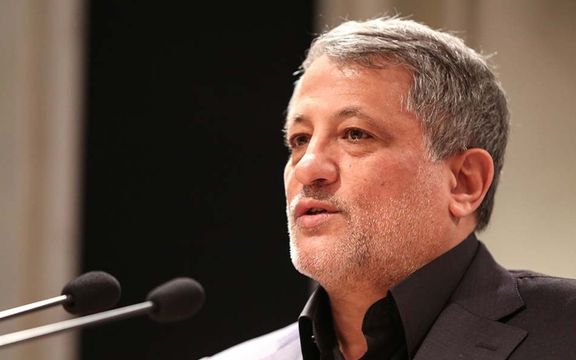
"In such a monopolized situation, the conservatives cannot even blame others for the problems they have created for the country.” They can no longer blame others and “ there is no way out of the situation as no alternative approach has been left," Hashemi said, adding that "In such a situation neither progress is possible, nor a U-turn is acceptable for the 'revolutionaries' in Iran."
Hashemi also pointed out that an unprecedented consensus has been formed in the international community against the Islamic Republic because of mistakes by the ultraconservative government in foreign policy. When foreigners talk about intervention in Iran, we see no serious opposition to that in Western public opinion. He said that no UN resolution has been ever issued about Iraq, Libya and Syria like the resolution that called for a fact-finding committee to probe into the violation of human rights in the Islamic Republic.
The UN Human Rights Council voted November 24 to launch an independent investigation into Iran's deadly repression of protests, that has killed around 500 civilians.
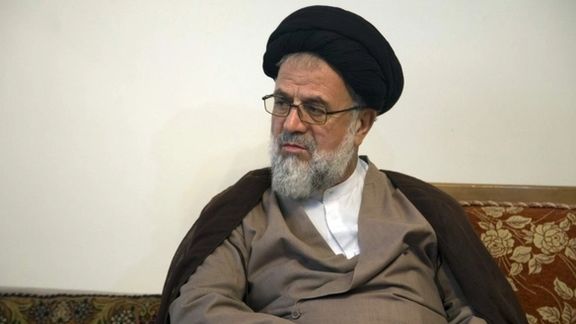
He quoted Iranian academics as saying that the Islamic Republic is suffering from a bipolar political situation and a state of near collapse in which neither politicians nor clerics have any influence or control over the society.
At the same time, Ayatollah Hossein Mousavi Tabrizi, a former Attorney General, said Wednesday that top clerics have lost their status as a point of reference for the Iranian society. Tabrizi also harshly criticized the government's economic and foreign policies.
He said: "I wish at least there were a group of economists in the government who did nothing other than sort out the economic issues, but it is not clear who in Iran is responsible for solving the country's economic problems."
Speaking on foreign policy, Tabrizi talked about an issue for which solely Supreme Leader Ali Khamenei is responsible. He said: "Trusting the Russians brings losses to us. Russians betray Iran and take advantage of us. They pretend to be Iran's friend, but they keep blackmailing Tehran." Tabrizi pointed out: "We need to correct our foreign policy, otherwise, the Russians will plunder our resources and at the end serve other countries' interests."
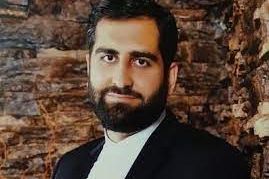
Iran International has learned that Ghasem Fathollahi, an officer of the Revolutionary Guards who was killed in Tehran, was assassinated by the IRGC intelligence.
Fathollahi, a commander of Basij militia unit in one of the neighborhoods of the capital Tehran, was killed Tuesday outside his home after being shot four times by a gunman who fled the scene on a motorcycle. He succumbed to his injuries at a hospital near his place of residence.
He was the commander of the basij base of a mosque in Khani Abad in Tehran, District 12 downtown Tehran.
Initial reports suggested that he was killed by the people opposed the clerical regime, but later sources close to the IRGC claimed that he was killed during a robbery. On Thursday, sources told Iran International that he was shot dead by IRGC intelligence agents due to his leniency towards protesters.
According to our sources, the Intelligence Organization of the IRGC had become suspicious of Fatollahi in the past few weeks and had been monitoring him. The sources said that he refused to confront the demonstrators and suppress them during the protests in the area. The regime uses the Basij paramilitary militia extensively against demonstrators. They are hated by many citizens for acting as mercenaries who are willing to use violence indiscriminately against civilians.
Investigating his conduct, IRGC’s intelligence found out that he was not alone and was in contact with a group of the disgruntled members of security forces who tried to refrain from using deadly violence against protesters, including opening fire at them.
According to Iran International's sources, the Revolutionary Guard Intelligence Organization is worried about the growing number of security forces who refuse to confront the protesters and has taken measures to deal with this trend.
He was apparently using a PlayStation device to keep in touch with a network of protesters. The assailant or someone who reportedly accompanied him took this PlayStation device too.
In the past months, there have been several reports that protesters in different cities have been using private chat rooms available in online games on Sony’s PlayStation network to coordinate street demonstrations. The number of games available on PlayStation is countless, and this issue makes it impossible to track and monitor their conversations.
It is not yet clear whether Fathollahi’s killing was a pre-meditated, deliberate full-fledged hit operation or only a collateral incident during the attempt to seize the PlayStation and arrest him.
Earlier in June, Iran International’s sources said that a commander of IRGC Quds Force unit 840 -- Colonel Ali Esmailzadeh, who died under suspicious circumstances in Karaj on May 30, was an inside job. Esmailzadeh died when he fell from the roof of his home in Jahan Nama area of Karaj.
He was a close colleague of Colonel Hassan Sayyad-Khodaei, the acting commander of the elite Qods Unit 840, who was shot dead behind the wheel of his car outside his home in Tehran on May 22 by two gunmen who fled the scene on a motorbike.
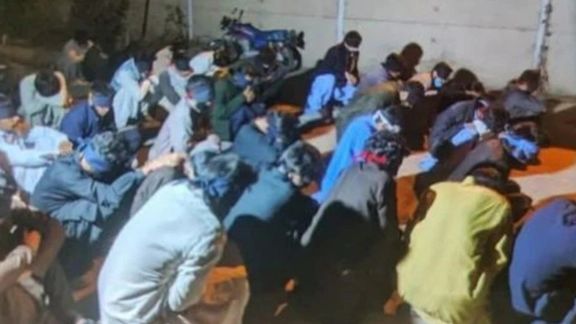
The Islamic Republic’s intelligence ministry says as of Wednesday at least 100 people have been arrested in the Sunni-majority southeastern city of Zahedan.
Intelligence ministry directorate in Sistan-Baluchistan announced that at least one hundred people, who it called "criminals", "armed robbers" and "illegal immigrants", were detained with the cooperation of the Islamic Revolutionary Guard Corps and the police.
Using the common rhetoric of the Islamic Republic authorities, the directorate claimed, "the illegal foreign nationals played an effective role in insecurity, creating terror and violent robberies in Zahedan."
Almost three months after the "Bloody Friday of Zahedan" mass arrests of Baluch citizens has begun in the Sunni city.
The Bloody Friday in Zahedan took place September 30, when security forces killed at least 93 people, and injured hundreds more as civilians protested.
On Monday, regime forces arrested at least 40 citizens in a joint operation in the flashpoint city.
Reports say the arrest of Baluch citizens has continued in the past few days, and according to activists at least one hundred citizens, including children with no birth certificates have been detained.
According to Baluch Activists Campaign website, the military commanders have attacked ordinary citizens in public places of Zahedan on the pretext of "arresting criminals and armed robbers".
Among the detainees were seasonal workers who had gathered at a square in downtown Zahedan. Agents have reportedly arrested them while running over them in military vehicles. The report said those who tried to escape to different areas of the city, have been shot.